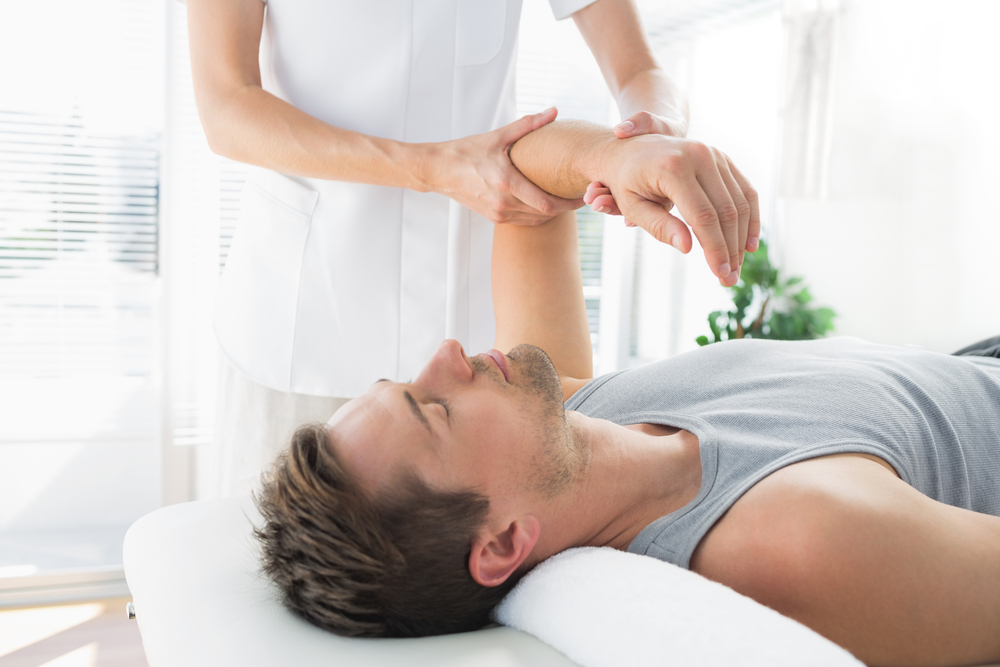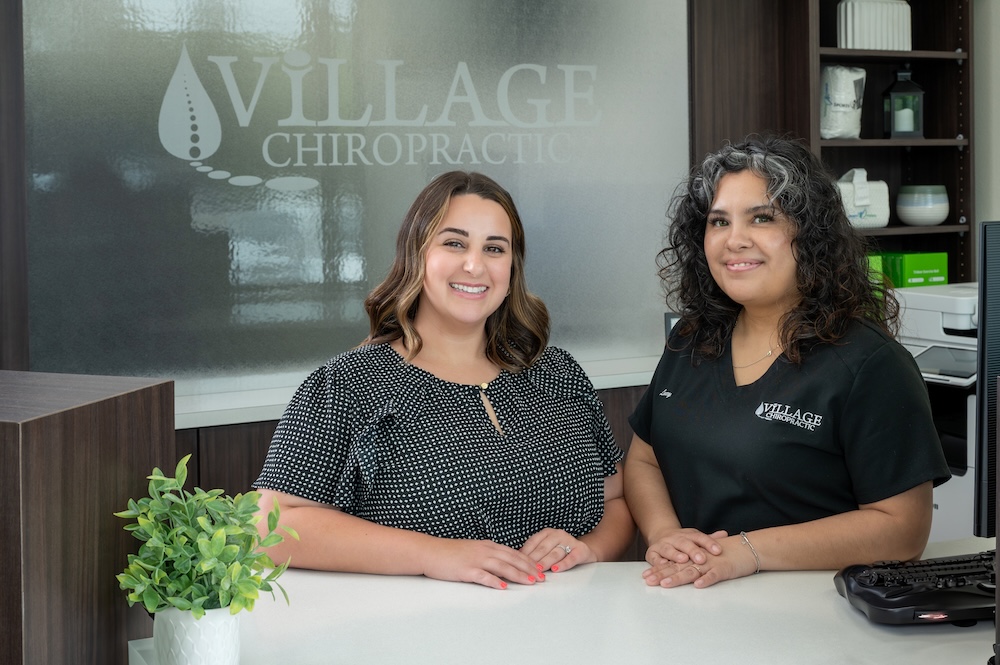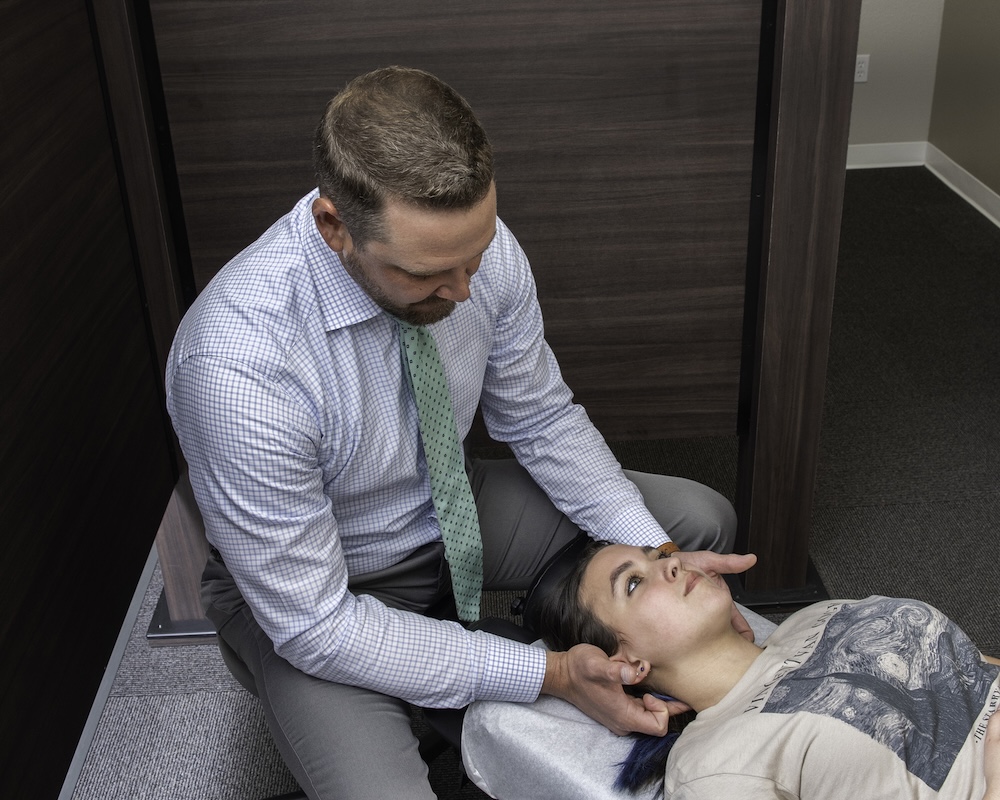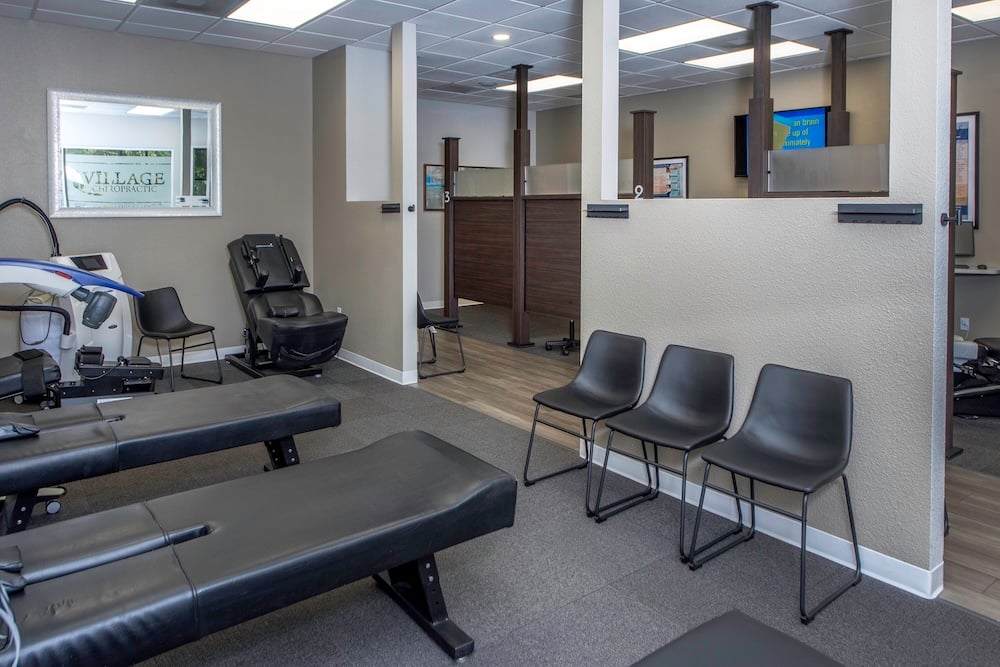6 Types of Chiropractic Therapies and How They Can Help
6 min read

Chiropractic care is a safe and effective treatment option for a variety of conditions that cause pain and slow you down -- or even get in the way of living your life. There are a variety of different treatment techniques that chiropractors can use. But the right set of techniques for each person depends on what hurts. And for some patients, nothing’s hurting yet so they use chiropractic care to help prevent pain from developing.
Each technique has its unique set of benefits. Here are six commonly used chiropractic techniques that might have the potential to improve your quality of life.
1. Spinal Adjustments
This is the type of therapy that most people think of when they hear the word chiropractor. Spinal adjustments, often called spinal manipulation, should only be done by a trained chiropractor. The adjustment itself doesn’t hurt and actually brings quite a bit of relief with it. That’s because the spine is central to all of the other joints in the body. A small misalignment in the spine can lead to bigger issues in far away areas including your hips, knees, shoulders, etc.
To perform spinal adjustment, the chiropractor uses his hands or a small instrument while you’re lying comfortably, face down, on the chiropractic table. There will be some pressure and popping sounds, but that’s only air coming out of the joints as your spine is realigned.
When to Use Spinal Adjustments:
Spinal adjustments can be effective in treating lower back pain, neck pain, hip pain, and even headaches. The treatment also helps with increased mobility and faster recovery from sport-related injuries. Some people opt for regular spinal adjustment sessions as preventative care. It’s important to note, however, that if you have a spinal injury such as a herniated disc or other spinal condition that you talk to the chiropractor about it. For these patients an adjustment may be too much pressure and movement for it to be used before you’ve healed further.
After the session, most patients feel immediate relief. Sore muscles and mild discomfort are normal after a spinal adjustment. Drink plenty of water to help your body flush out any impurities that may have been released in your muscles or joints after the adjustment.
2. Spinal Decompression
Nonsurgical spinal decompression is a very useful treatment for back and neck pain. It is a type of traction therapy that when the joint is placed into the device that can provide firm and consistent pulling motion on the joint. The goal of the technique is to relieve pain by stretching the spine gently.
This approach is an effective treatment for degenerative disc disease, spinal stenosis, and herniated discs. Untreated herniated discs can also lead to sciatica which can leave individuals constantly in pain.
This approach provides increased blood flow, proper alignment, and an increased range of motion. These factors can lead to faster healing, pain relief and potentially avoiding an invasive surgery.
How is Spinal Decompression Performed?
At Village Chiropractic in The Woodlands, Texas, we use a tool called Back-on-Trac for lumbar decompression. This will help expand the space between the lower back vertebrae. It’s done slowly, carefully, and over the course of several weeks for the most effective treatment.
During the treatment, the patient sits or lies on a special table. Nonsurgical spinal decompression is a type of motorized spinal traction that is used to reduce the pressure on the spinal discs. This is done by gently stretching the spine for a period of 15 to 30 minutes per treatment, over a period of several weeks, depending on the patient’s condition.
3. Knee Traction
Pain from osteoarthritis in the knee joint is one of the most common sources of pain as we get older. While a knee replacement may be necessary at some point, it’s usually recommended that you delay that surgery as long as possible because of the life of the artificial joint. Knee traction is a chiropractic procedure that can help relieve knee pain and help you delay a knee replacement. Other patients we often see who need knee traction are those who previously had a knee injury and still experience some pain in the joint as a result.
Knee traction is another form of decompression therapy. It involves gently stretching the knee joint to increase your mobility and reduce pain for the bones rubbing together.
In 2018, a study to examine the effectiveness of knee traction therapy was conducted. The study involved two subjects with degenerative gonarthritis. This type of arthritis is the result of damage to joint cartilage and the surrounding ligaments and muscles of the knee that are needed to move your knee joint. After continuous application of traction therapy, there was significant pain relief for those who were studied.
How is Knee Traction Performed?
Knee non-invasive procedure and done over the course of several weeks. It promotes healing by lowering the bone-to-bone movement in the knee joint and increases the blood flow to the knee.
At our office in The Woodlands we will have you sit comfortably in our Knee on Trac chair where we’ll use the technology of the chair to help stretch out the joint for decompression. We do this slowly and only for 5-10 minutes in each session. You’ll usually need several sessions to see lasting results. Although you may start to feel better right away too! The number of sessions will depend on how much pain you’re feeling.
4. Electrical Muscle Stimulation (EMS)
Electrical muscle stimulation involves the application of mild electrical pulses to an area of the body that’s feeling pain. The electrical impulses stimulate muscle contraction. Muscle contraction can help stop muscle spasms and it releases endorphins, which are a natural pain reliever. We often use EMS to treat back and neck pain effectively. It also includes benefits such as:
- Speeding up the healing process. It increases blood flow and muscle builds strength for a shorter recovery period.
- It can lower your stress levels.
- It’s non-invasive and doesn’t hurt
- There are no side effects.
During the treatment, the chiropractor places electrodes on the patient’s skin and uses the electrical muscle stimulation device to send the pulses to that area of the body for somewhere between 12 and 20 minutes. You will feel a tingle, but you won’t feel like you’re being shocked. The intensity of the electrical pulses can be adjusted so that the treatment is effective while keeping you comfortable.
5. Cold Laser Therapy
Cold laser therapy uses a low intensity laser, meaning it doesn’t heat up the body when used. When the laser is applied to the treatment area, affected tissues absorb the light. This causes blood to rush to the treatment area, which promotes healing of damaged cells. MLS cold laser therapy stimulates all cell types including muscle, ligament, cartilage, and nerves. This is what makes it an effective treatment for many different painful conditions.
How is Cold Laser Therapy Used?
Cold laser therapy can be used for back pain, joint pain, neck pain, and arm pain. Every patient is different and the severity of your pain and the damage found in the treatment area will determine how many treatments are needed. Generally, Dr. Thomas recommends patients receive 8 to 15 cold laser therapy sessions to achieve the best results. Your specific treatment plan will be discussed based on where you’re experiencing pain and the level of pain you’re experiencing. Each treatment session typically lasts from a few minutes to 20 minutes.
6. Massage Therapy
Massage therapy can help boost the success of many chiropractic treatments. It can be used in combination with a treatment for pain or an injury. And massage therapy is good for preventing pain from starting.
If you are looking for a painless way to support your spine and stay stress-free, add this chiropractic treatment to your routine. A trained massage therapist uses pressure and movement to relieve pain, relax muscles and release pressure. The goal is to lessen pain, improve mobility, and lower tension in the muscles.
The Right Chiropractic Treatments for You
Each of these chiropractic treatments are good for people who have specific types of pain, or for those who are looking to prevent pain. And for many people a combination of therapies are recommended for the best results. To get started it’s best to have a consultation with our chiropractors who will evaluate your condition and create a plan and timeline for you.
Request an appointment at our office in The Woodlands for your initial consultation.









